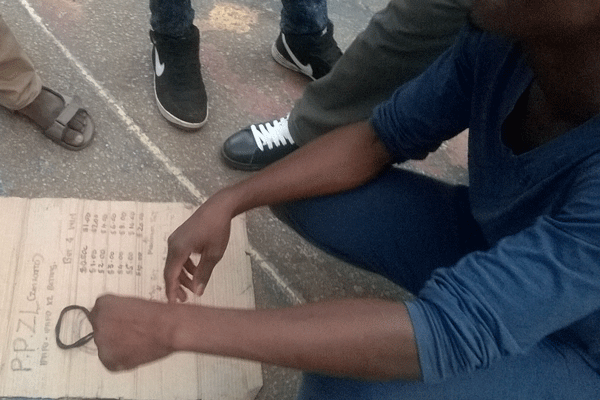
Zimbabwe’s showbiz industry is a cut-throat business that requires persistence and aggression in addition to one’s talent.
By Kennedy Nyavaya

It’s a dog-eat-dog business, with artistes from different genres battling to make it to the top of the food chain — all to attain both the fame and respectable bank balances associated with celebrity status.
As with formal job interviews where many are called but few are chosen, in the arts sector, simple artistic brilliance will not make the cut as one literally needs to put in extra effort to gain prominence.
Those that fail to make a mark are often left to either settle for day jobs or struggle like everybody else to put food on the table. The latter gave birth in Harare to the idea of street entertainers that are cashing-in on pedestrians in the Central Business District (CBD) through a mixed bag of entertainment.
Theatre, accapella, betting games and even martial arts are part of some of the performances that one can bump into while walking on the pavements in the capital.
The street performers are individuals who have created ways to extract value off their forte despite the inability to perform or share stages with the giants of show business.
When crew from The Standard Style took a walk in the city last week, it observed that the action commenced in the early hours, which attracts huge crowds that surround the different performers, cheering them on.
- Chamisa under fire over US$120K donation
- Mavhunga puts DeMbare into Chibuku quarterfinals
- Pension funds bet on Cabora Bassa oilfields
- Councils defy govt fire tender directive
Keep Reading
The activities involved a lot of active interchange between the performers and their audiences.
After having captured the crowd’s attention through an enticing piece, the performers would then take to charging a small fee to continue dishing out the “free” dose of entertainment.
“Pay us $3 if you want to watch a fight,” says one of two young men, demonstrating his Kung Fu skills along Speke Street, just next to the Town House.
Surprisingly, in spite of the biting economic situation in the country, the audience was able to raise the $3, allowing the action to continue. The mesmerised crowd kept their eyes fixed on the performers the whole time, not missing any of the action.
Apart from the amusing showmanship that was greatly appreciated by the crowd, the duo was also selling DVDs of their acts.
Less than 50m from the spot was another performance gathering moment with people arranging themselves in a similar circular manner around a man named Gift who was doing what he calls the “Pin Point Zimbabwe Lotto”.
“This game is called Pin Point Zimbabwe Lotto. If you win, you will get twice the amount you used to bet,” Gift told The Standard Style.
“It depends on the day so it differs but sometimes many people come and it can go either way because some people are smart enough to figure out the trick,” he added.
The game is played on a cardboard and one has to place a finger between two holes created by a string. If the finger is hooked by the string, they win.
Whether it’s by magic or intelligent tricks, the game is evidently feeding tummies in the city while observers also get entertained.
From what The Standard Style later gathered, the game has become such a hit in the city that some people are even going to the extent of betting their cellphones.
Those showcasing vocal prowess were also dotted across the CBD as they form small groups that sing while playing different instruments, thereafter selling CDs of their recordings.
Of late, even stuntmen and magicians have also taken their acts to the streets as a result of lack in platforms for talent exposure.
In healthy economies across the world, the arts sector boasts of lucrative market shares, in the process contributing significantly to the GDP.
However, in Zimbabwe it is hard to establish how much is really coming out of these activities but judging from the frequent occupation of the streets, the performers must be earning enough to at least survive.











